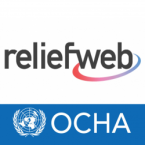ประกาศงานนี้หมดอายุแล้ว
Project Consultant
ที่องค์การสหประชาชาติOutputs:
Twelve Country briefs, 10-12 pages each, focusing on PM2.5. PM10, SO2, NO, O3, CO2, Methane (by 1 August 2023)
1) 8 pages: Overall National Context, including distinctive urban centers
Methodology: desk research and virtual meetings with environment stakeholders
policies (propose to move to national action plan reviews)
management system
monitoring (ground monitoring network),
mitigation technologies
2) 1-2 pages: Existing use of remote sensing (particularly for long range transport)
3) 1-2 pages: Path Forward (Absorptive Capacity)
Deliverables:
Twelve Country Briefs, drafts delivered on mutually agreed schedule. Final drafts of all briefs by 1 Aug 2023
One Regional Study (Action Plan), 20 pages, of 12 PAPGAPI Countries, to include:
1) 10 pages Diagnose air pollution and identify priorities at the national level
2) 7 pages Identify priority tasks based on governmental capacity, budget, people's needs, diplomatic issues
3) 3 pages Path forward: Recommending priority tasks with specific emphasis on regional cooperation modalities
Deliverables:
One Regional Study, draft delivered on mutually agreed schedule. Final draft by 28 Sept 2023
Home based
Expected duration Duties and ResponsibilitiesPurpose:
Clean air is among the regional public goods that will contribute to a sustainable, resilient and inclusive recovery. Yet air pollution, a transboundary environmental challenge that threatens all countries in Asia-Pacific, continues to increase and actions to date have been insufficient to protect the health of populations, food and water security, and the emerging economies across the region. 70 percent of the nearly seven million deaths due to air pollution occur in the region, which has some of the highest recorded air pollution levels. Poor and vulnerable people are disproportionately affected as they are unable to access solutions to protect themselves. The economic burden of air pollution on countries in the region ranges from 5 percent to 14 percent of their GDPs.
Key sectors that contribute to air pollution include energy and transportation sectors (due to dependence on fossil fuels), agriculture and forestry sector (from biomass burning, chemicals from fertilizers and pesticides), industries (release of chemicals and toxic fumes) and waste management (toxic fumes from open burning and landfills).
The Geostationary Environment Monitoring Spectrometer (GEMS), launched by the Republic of Korea in February 2020, enables the hourly monitoring of air pollution levels for almost 20 countries in Asia. The regular measurement of O3 and its precursors NOx and volatile organic compounds, along with particulate matter, SO2 and other pollutants, will improve the accuracy of air quality forecasts, top-down emission rates and air quality reanalysis datasets.
In this regard, an opportunity exists for countries of Asia to: 1) fill the data and information gap in the nation-wide monitoring of air quality,2) integrate and validate GEMS data production with reliable ground monitoring information for better understanding of air pollution, and to improve model simulations of air quality, including its forecasting and warning service; 3) enhance their capacity to undertake the comprehensive analysis of data derived from space and ground networks; and 4) promote policy dialogue and enhance the capacity for monitoring and management of air pollution.
This consultancy will create 12 reports on selected air pollution issues at the national level in the following countries: Thailand, Indonesia, the Philippines, Viet Nam, Cambodia, Lao People's Democratic Republic, Mongolia, Nepal, Sri Lanka, Bangladesh and India. The consultancy will also create a regional report on the air pollution situation and priorities, including recommendations of priority tasks and regional cooperation modalities.
Objective:
Undertaking the comprehensive analysis of data derived from spacecraft and ground network, including a national assessment of data availability and capacity to develop and utilize tailored air pollution decision support tools and remote sensing data including:
a) A needs assessment for each country covering the existing use of remote sensing data, the capacity of each country to handle and process remote sensing data, air pollution policy and management overview, recommendations for air pollution improvement plans, assessment of existing air pollution monitoring networks, and key stakeholders.
b) A regional study on the air pollution situation and priorities, including recommendations of priority tasks and regional cooperation modalities.
Skills: Experience working with UN agencies on intergovernmental processes dealing with air pollution desirable.
Academic Qualifications: Master's Degree in public administration, international affairs, environment, social science or related area required, PhD is desirable
Experience: 10+ years experience in intergovernmental processes or environment science required with a focus on air pollution and greenhouse gases desirable. Experience in Asia is beneficial.
Language: Fluent in English
THE UNITED NATIONS DOES NOT CHARGE A FEE AT ANY STAGE OF THE RECRUITMENT PROCESS (APPLICATION, INTERVIEW MEETING, PROCESSING, OR TRAINING). THE UNITED NATIONS DOES NOT CONCERN ITSELF WITH INFORMATION ON APPLICANTS' BANK ACCOUNTS.
ประสบการณ์ที่จำเป็น
- ไม่ระบุประสบการณ์ขั้นต่ำ
เงินเดือน
- สามารถต่อรองได้
สายงาน
- ที่ปรึกษา
ประเภทงาน
- งานประจำ
เกี่ยวกับบริษัท
ReliefWeb is the leading humanitarian information source on global crises and disasters. It is a specialized digital service of the UN Office for the Coordination of Humanitarian Affairs (OCHA). We provide reliable and timely information, enabling humanitarian workers to make informed decisions a ... อ่านต่อ
ร่วมงานกับเรา: Be part of a fun, fast-paced, international work environment using the latest tools and technology . Working with ReliefWeb will not only enhance your resume but also contribute significantly to your professional development. You will be assigned projects that will make a meaningful impact a ... อ่านต่อ
สวัสดิการ
- ประกันสังคม















